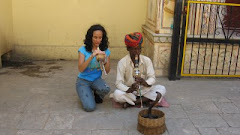
More than half the internet users around the world don't use a Latin-based script as their native language. Now, web addresses in some other scripts will go live. Here is a BBC.com article on the subject.:
'Historic' day as first non-latin web addresses go live
Arab nations are leading a "historic" charge to make the world wide web live up to its name.
Net regulator Icann has switched on a system that allows full web addresses to contain no Latin characters.
Egypt, Saudi Arabia and the United Arab Emirates are the first countries to have so-called "country codes" written in Arabic scripts. The move is the first step to allow web addresses in many scripts including Chinese, Thai and Tamil.
More than 20 countries have requested approval for international domains from the Internet Corporation for Assigned Names and Numbers (Icann).
It said the new domains were "available for use now" although it admitted there was still some work to do before they worked correctly for everyone. However, it said these were "mostly formalities".
Icann president Rod Beckstrom described the change as "historic".
The introduction of the first web names using so-called country code top-level domains (CCTLDs) is the culmination of several years of work by the organisation.
Previously, websites could use some non-Latin letters, but the country codes such as .eg for Egypt had to be written in Latin script.
The three new suffixes will allow web addresses to be completely written in native characters.
"All three are Arabic script domains, and will enable domain names written fully right-to-left," said Kim Davies of Icann in a blog post.
One of the first websites with a full Arabic address is the Egyptian Ministry of Communications.
Some countries, such as China and Thailand, had already introduced workarounds that allow computer users to enter web addresses in their own language.
However, these were not internationally approved and do not necessarily work on all computers.
Icann warned that the internationalised domain names (IDNs), as they are known, would also not work on all PCs immediately.
"You may see a mangled string of letters and numbers, and perhaps some percent signs or a couple of "xn--"s mixed into the address bar," said Mr Davies. "Or it may not work at all."
Previously, Icann has said that people would have to update the software on their computers to view the domains.
"Computers never come with the complete set of fonts that will allow it to show every possible IDN in the world.
"Often this is fixed by downloading additional language packs for the missing languages, or specifically finding and installing fonts that support the wanted languages."
Global access
When Icann first announced its plans for non-Latin web names it said it was the "biggest change" to the net "since it was invented 40 years ago".
"Over half the internet users around the world don't use a Latin-based script as their native language," said Mr Beckstrom at the time.
"IDNs are about making the internet more global and accessible for everyone."
Icann said it had received 21 requests for IDNs in 11 different languages, including Chinese, Russian, Tamil and Thai.
Website owners in Egypt, Saudi Arabia and the United Arab Emirates will now be able to apply for web addresses using the new country codes.
The first country codes:
• Egypt: مصر
• Saudi Arabia: السعودية
• United Arab Emirates: امارات
Source: Icann
see article here: http://news.bbc.co.uk/2/hi/technology/10







.jpg)
.jpg)



